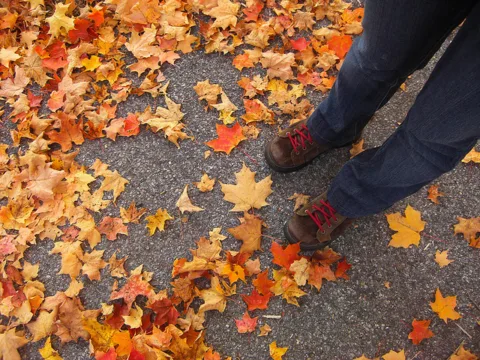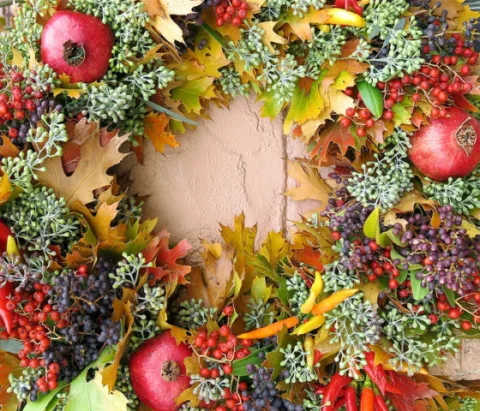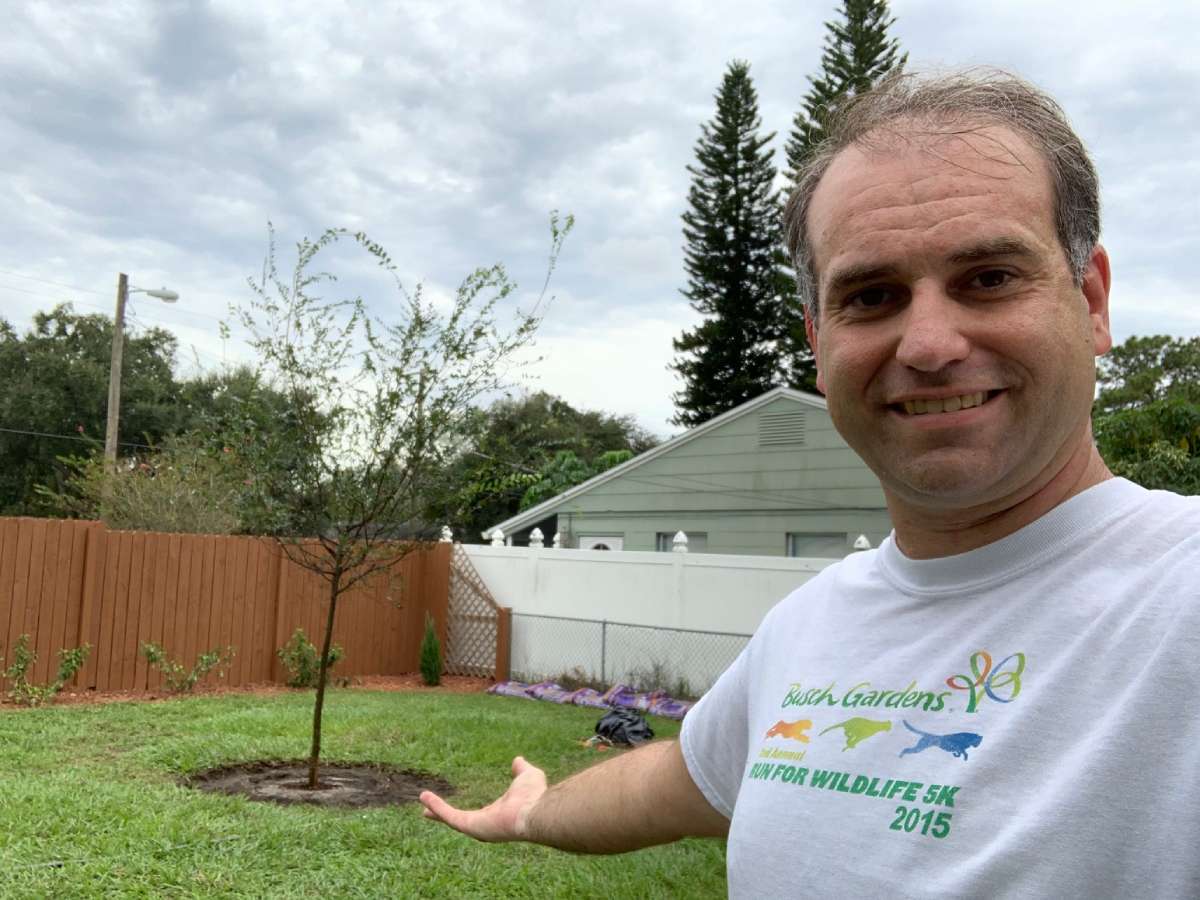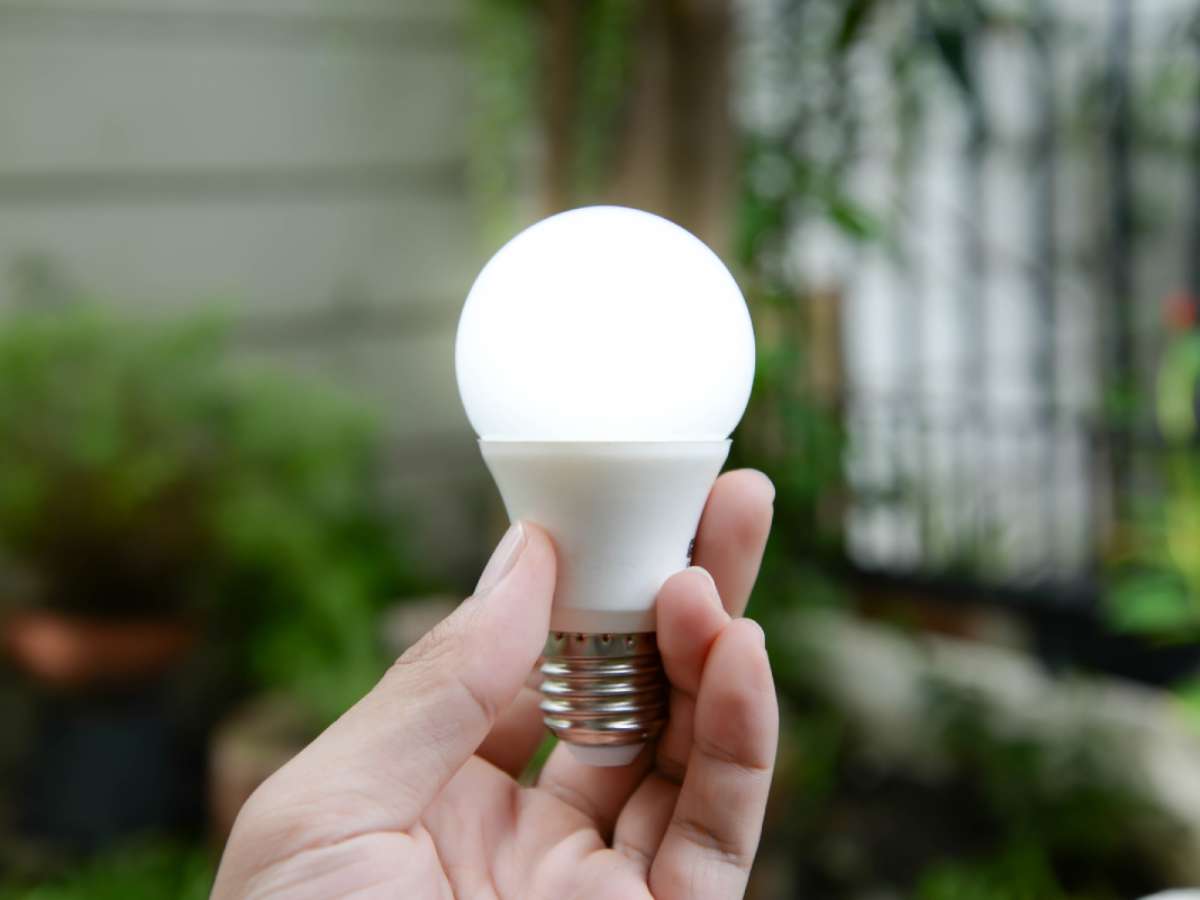When autumn comes and the fall foliage begins changing color, that usually means its time to break the rake out and start bagging up tons of fallen leaves.
Must read: 7 Easier Ways To Rake Leaves… And Keep It Fun!
Many people just scoop the pounds upon pounds of brown, orange, and yellow leaves into big black yard bags and set them out on the curb in the garbage heap.
But as I’ve learned over the years, there are many more productive things you can do with fallen leaves than just setting them out for the garbage crew to pick up or burning them.
Here are 3 awesome ideas for recycling fall leaves:
#1 – Making Wreaths From Leaves
There’s perhaps no more festive a way to recycle fall foliage than to make autumn leaf wreaths.
Hey, I can admit it — even this guy likes seeing something fancy on the door to say that fall has finally arrived.
One of the best things about making a fall wreath is that there are no rules on how to do it — you can let your creativity run wild with a project like this.
You don’t really have to spend big bucks on swag like plastic gourds or big, fancy bows — because you probably already have pine cones, branches and twigs, and flowers right in your yard. The only things you may need to buy before making a fall wreath are:
- A wire wreath form for laying out the foundation of your wreath
- Some florist tape for binding branches, leaves, and other adornments to the frame
- A pair of wire cutting scissors for snipping wire and other small wreath elements
- Some needle-nose pliers for bending twigs and cutting larger elements
GREEN DIY TIP: If you want to save money on buying a wire wreath form, I have also used metal wire hangers to create a wreath form. All you need to do is bend the hanger into a circle (or any shape you want). You can either snip the hooked end of the hanger off with your pliers or leave the hook for hanging the wreath.
Here are some great fall wreath examples and DIY tips:
50 Amazing Fall Wreaths
DIY – How To Make Fall Wreaths
New Modern Wreath Ideas For Fall
30 DIY Fall Wreaths
How To Make An Easy Fall Wreath
#2 – Mulching Leaves
No matter what type of gardening you do, there’s a very good chance you’re going to want some mulch to help keep moisture near the roots of your plants and to help beautify your flower beds and hedges.
I’ve been using fallen fall foliage as mulch for many years. Not only is it so much cheaper to use leaves for mulch than it costs to buy wood chips from the garden center, but it’s also a greener way to mulch your yard and will help deliver tons of nutrients to the soil around your plants.
Raking leaves directly from the grass and into your flower beds is a fine way to mulch your garden. However, the better way would be to mow the leaves so they are chopped up and can enrich the soil more quickly.
An easy way to gather leaves for mulching is to simply:
- Make piles of leaves in your yard.
- Bag them up.
- Disperse the leaves throughout your plant beds.
You could also save the bagged foliage for neighbors who need mulch for their gardens.
Here are some tips for mulching leaves:
#3 – Composting Leaves
Composting your fall foliage is a great way to make some incredibly nutritious and delicious (to plants, that is!) soil. Of course, as with most compost piles, a leaf composting outfit will take some time before you start seeing the fruits of your labor.
Using leaves for composting begins much the same way as you would gather and prepare leaves for mulching.
It’s best to shred your leaves and then rake them into piles so you can easily transfer the leaves from the yard to the place where they need to be composted.
Before the composting magic can begin, you will first need to build a compost pile, as seen in this video:
Once you’ve built your compost pile, you can start to add your leaves or any other organic matter you would like to recycle.
Here are some great tips for composting leaves:
Determining when your compost is ready — or not — can be tricky.
It may take from 3 months to 1 year for leaves to finally compost, based on conditions and how often you turn the compost pile.






